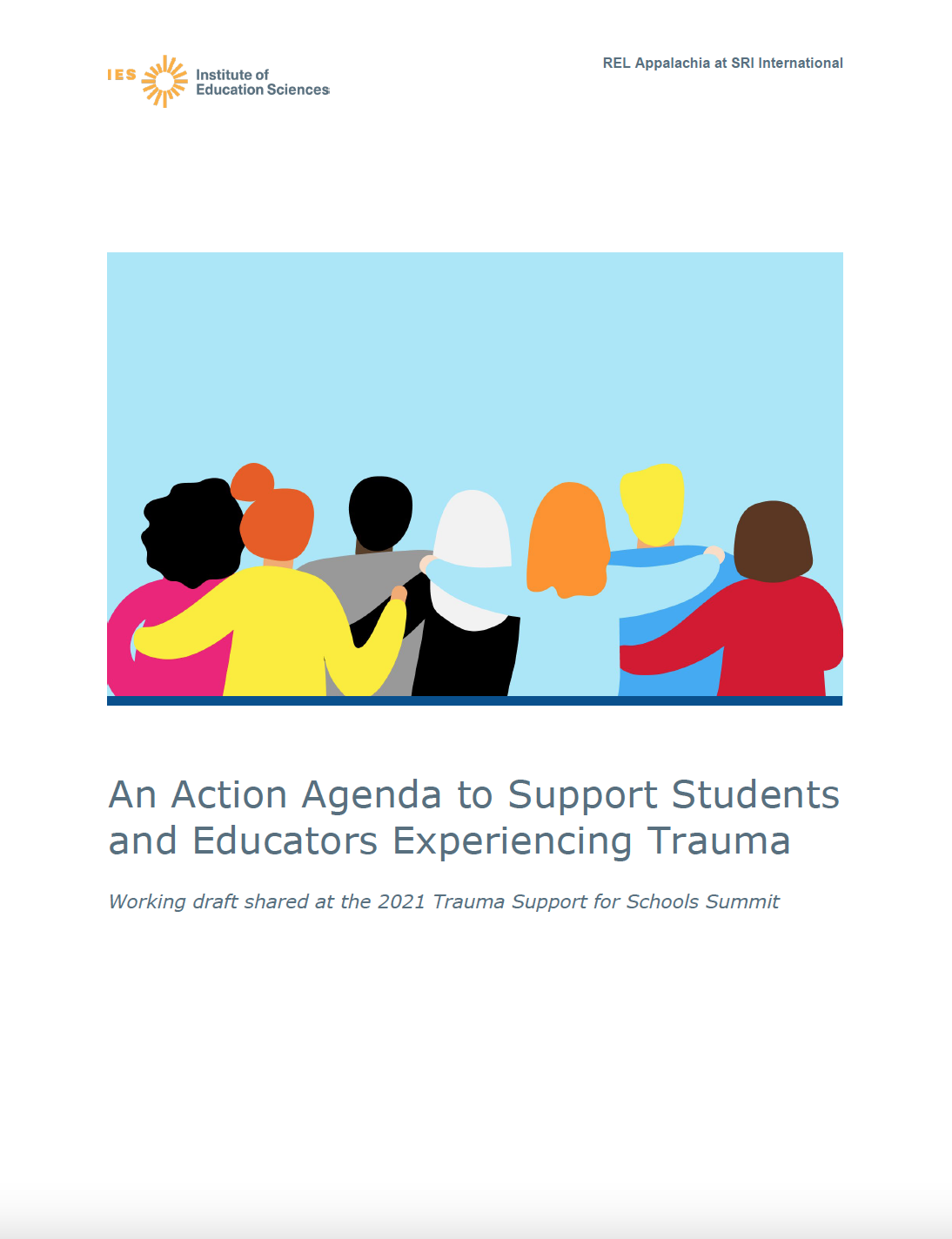A big-picture vision of success for addressing trauma and specific action steps for how this vision can be achieved.
Students and educators in Appalachia and across the nation face multiple sources of traumatic stress, spanning from the opioid epidemic to violence against people of color to the COVID-19 pandemic. Substance misuse in the Appalachian region has gradually increased over the past two decades (Moody et al., 2017), and the region’s opioid misuse rates exceed national averages (Meit et al., 2017). Parental opioid misuse has been associated with deleterious outcomes for children across multiple domains, including lower cognitive and academic performance, poorer social functioning and interpersonal relationships, and increased risk of developing a range of mental health disorders, such as internalizing and externalizing behavior disorders and substance use disorders (Peisch et al., 2018). Educators experience their own personal stress as well as secondary (or vicarious) trauma from daily exposure to students’ traumas; adult symptoms of traumatic stress—detachment, hopelessness, fatigue, distraction—erode educators’ abilities to instruct and support students, and impact their own emotional and physical health. Read more…
Topics: Assessment Educator supports Family engagement School-community partnerships Systems and policies Trauma-informed approaches
Tags: District/school administrators Families Leaders/policymakers Teachers/school staff
Share: